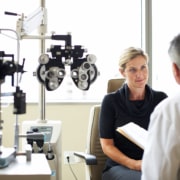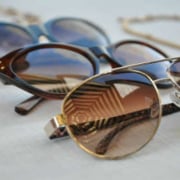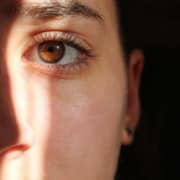3 Resolutions to See Better in 2018
Refusing to eat sugar and trying to burn 3,000 calories five days a week are a few resolutions that are likely going to last a solid week— at most. Rather than following the crowd and setting a few resolutions that are not only unattainable but ones that won’t last, set your resolutions apart from the crowd this year and set a few resolutions that will help you see better in 2018.
Wear Sunglasses Every Time You’re Outside
Even if it’s cloudy outside, that Hawaii sun can still wreak some serious damage on your vision. Shield your eyes from the sun’s harsh rays all year long and make sure that you don’t leave the house without some UVA and UVB protected sunglasses. Try keeping a pair in your car, bag, and anywhere else so that you always have a pair of sunglasses on hand.
Eat Better
Eating better isn’t just good for your blood sugar and waistline, eating better is also good for your eyesight. Eating foods that are rich in antioxidants like leafy greens are one of the best ways to shield our eyes from macular degeneration. Additionally, eating foods that are high in omega-3 fatty acids like salmon are good at keeping your eyes lubricated and preventing you from developing a chronic dry eye.
Get An Eye Exam
Can you remember the last time that you got a professional eye exam from Dr. Jeffrey Maehara? Depending on your age, genetics, and overall health of your eyes, it’s recommended that you get an eye exam around every 1-3 years on average. If you are past that timeframe, contact our office and schedule your next eye exam with Dr. Jeffrey Maehara today!
Want to see better and clearer in 2018? Try adding these three resolutions to your list. To learn more about how you can take better care of your eyes, schedule an appointment at one of our offices today!





 Having good eyes isn’t just about having good vision. In fact, having good eyes includes taking care of the skin around them as well. As one of the most sensitive parts of your face, the skin under and around your eyes often gets neglected— leaving patients with dryness and more visible fine lines and wrinkles. One of the best and easiest ways to protect this sensitive skin is to use an eye cream both morning and night. However, with so many different options available at drugstores and department stores, it can seem a bit overwhelming. To help you find an eye cream that will do your eyes wonders, look for one that contains these ingredients. Read on to learn more.
Having good eyes isn’t just about having good vision. In fact, having good eyes includes taking care of the skin around them as well. As one of the most sensitive parts of your face, the skin under and around your eyes often gets neglected— leaving patients with dryness and more visible fine lines and wrinkles. One of the best and easiest ways to protect this sensitive skin is to use an eye cream both morning and night. However, with so many different options available at drugstores and department stores, it can seem a bit overwhelming. To help you find an eye cream that will do your eyes wonders, look for one that contains these ingredients. Read on to learn more.






 With spring in full bloom, so are allergy causing things like dander and pollen. If you suffer from seasonal allergies and are noticing that your eyes are suddenly extremely dry and itchy, try these following tips to help you to get back to feeling like your normal self once again. Read on to learn more.
With spring in full bloom, so are allergy causing things like dander and pollen. If you suffer from seasonal allergies and are noticing that your eyes are suddenly extremely dry and itchy, try these following tips to help you to get back to feeling like your normal self once again. Read on to learn more.




